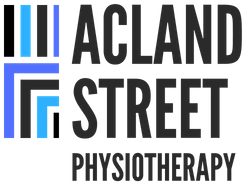|
In the realm of orthopaedic injuries, meniscal tears stand out as both common and challenging, particularly in active individuals. Traditionally, arthroscopic partial meniscectomy (APM) has been a go-to treatment for these injuries, aiming to relieve pain and restore function. However, recent research suggests a pivotal shift in our approach—highlighting the effectiveness of conservative management, including physical therapy, over arthroscopy for certain cases. This blog post explores the evidence from recent studies, advocating for a more measured approach to treating partial meniscal tears.
The Debate: Arthroscopy vs. Physiotherapy A landmark study published in the British Journal of Sports Medicine by van der Graaff et al. (2023) compared outcomes between arthroscopic partial meniscectomy and physical therapy in young patients with traumatic meniscal tears. This randomised controlled trial found no significant difference in International Knee Documentation Committee (IKDC) scores, which measure symptoms, knee function, and sports activity levels, at 24 months follow-up between the two groups. Interestingly, 41% of patients initially managed with physical therapy did not require subsequent arthroscopy, challenging the necessity of immediate surgical intervention. Broadening the Perspective: Systematic Reviews Further backing this shift, a systematic review by Brignardello-Petersen et al. (2017), published in BMJ Open, examined the effects and complications of knee arthroscopy compared with conservative management in patients with degenerative knee disease. The review found high-certainty evidence that knee arthroscopy offers very small to no long-term benefits in pain or function over conservative strategies. Similarly, Rotini et al. (2023) conducted a systematic review of systematic reviews, which concluded that exercise therapy often equals or surpasses arthroscopic surgery in improving pain and function for degenerative meniscal lesions. Implications for Clinical Practice These findings underscore a critical reassessment of the routine use of arthroscopy for partial meniscal tears, particularly in the context of degenerative knee conditions. Physiotherapy, focusing on strengthening and stabilising the knee joint, emerges as a potent first-line treatment option that can defer or even eliminate the need for surgery in many cases. However, it's essential to acknowledge that surgical intervention may still be necessary for specific patient populations. The challenge lies in accurately identifying those who may benefit from surgery after an unsuccessful trial of conservative treatment. Conclusion The shift towards conservative management for partial meniscal tears represents a more patient-centric approach, minimising the risks and costs associated with unnecessary surgery. These recent studies provide compelling evidence that physical therapy should be considered the first line of treatment for many patients with meniscal tears. As we move forward, personalised treatment plans, grounded in the latest research and tailored to each patient's unique situation, will likely yield the best outcomes. References
0 Comments
Leave a Reply. |
Author
Archives
May 2024
|
Copyright Acland Street Physiotherapy © 2024

 RSS Feed
RSS Feed